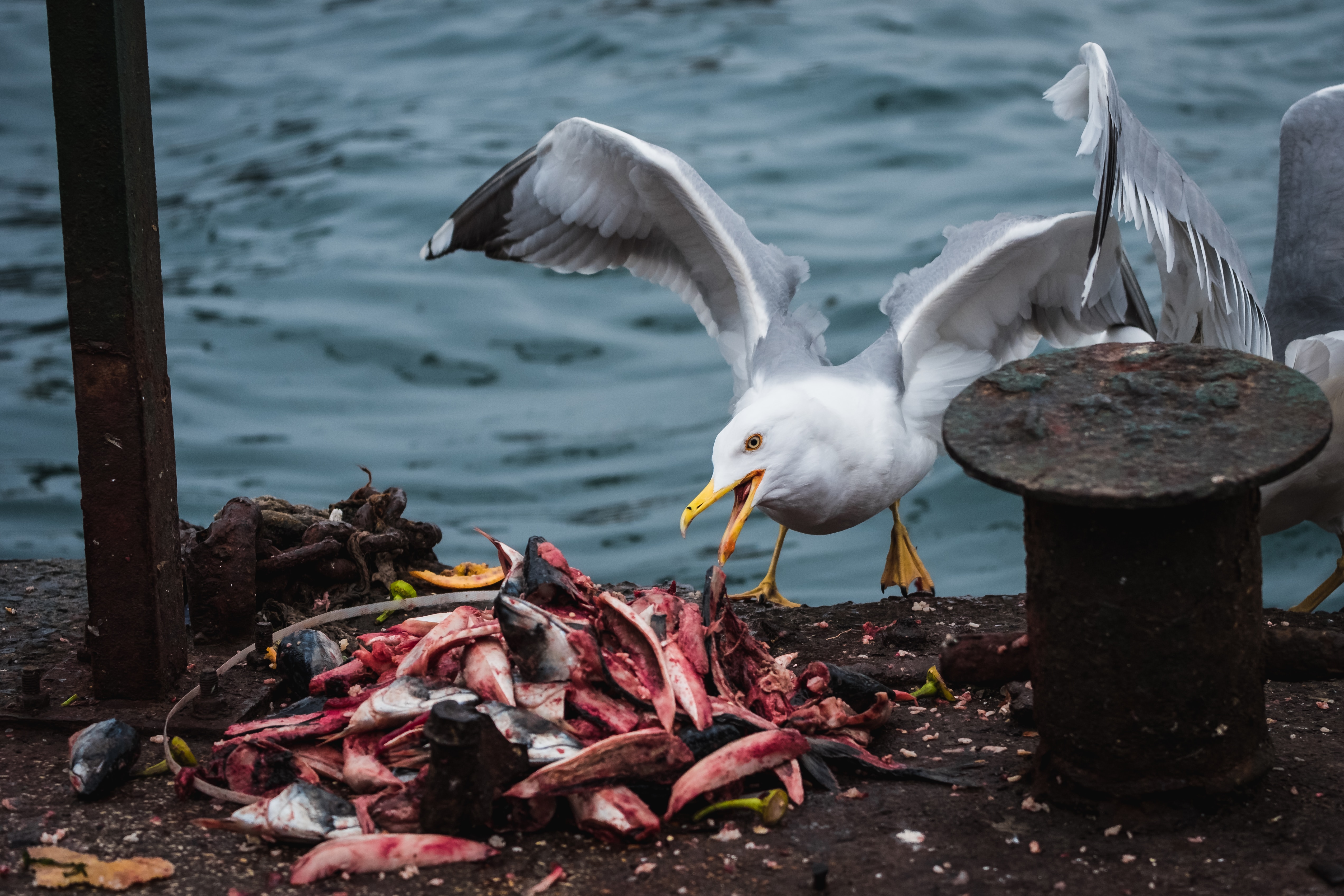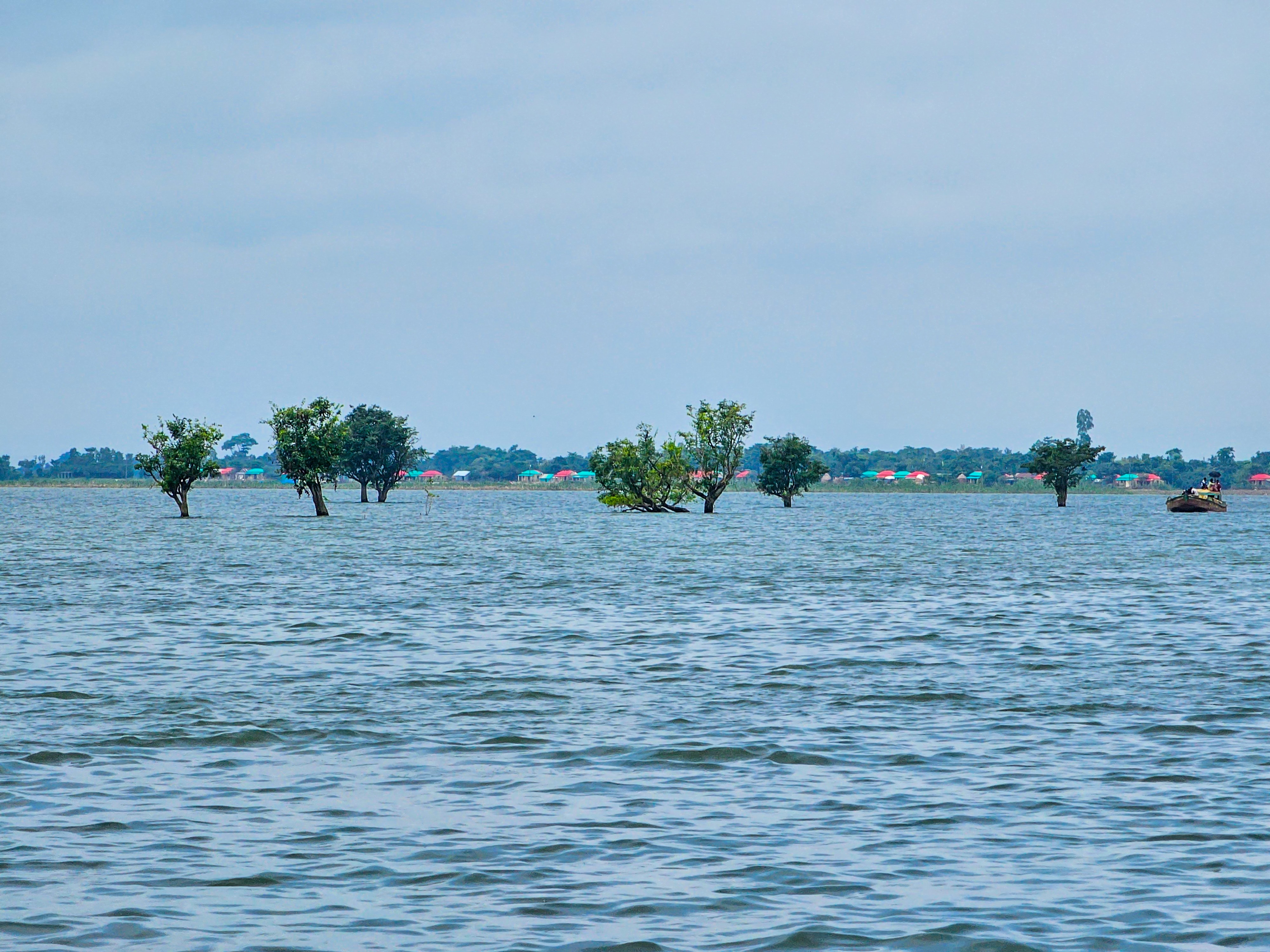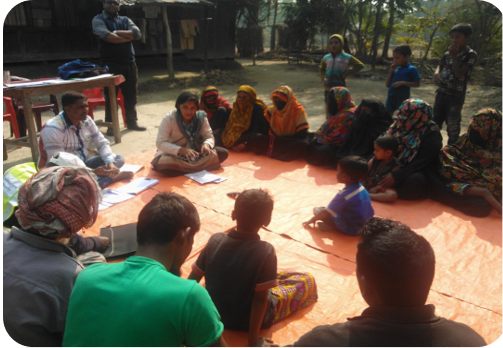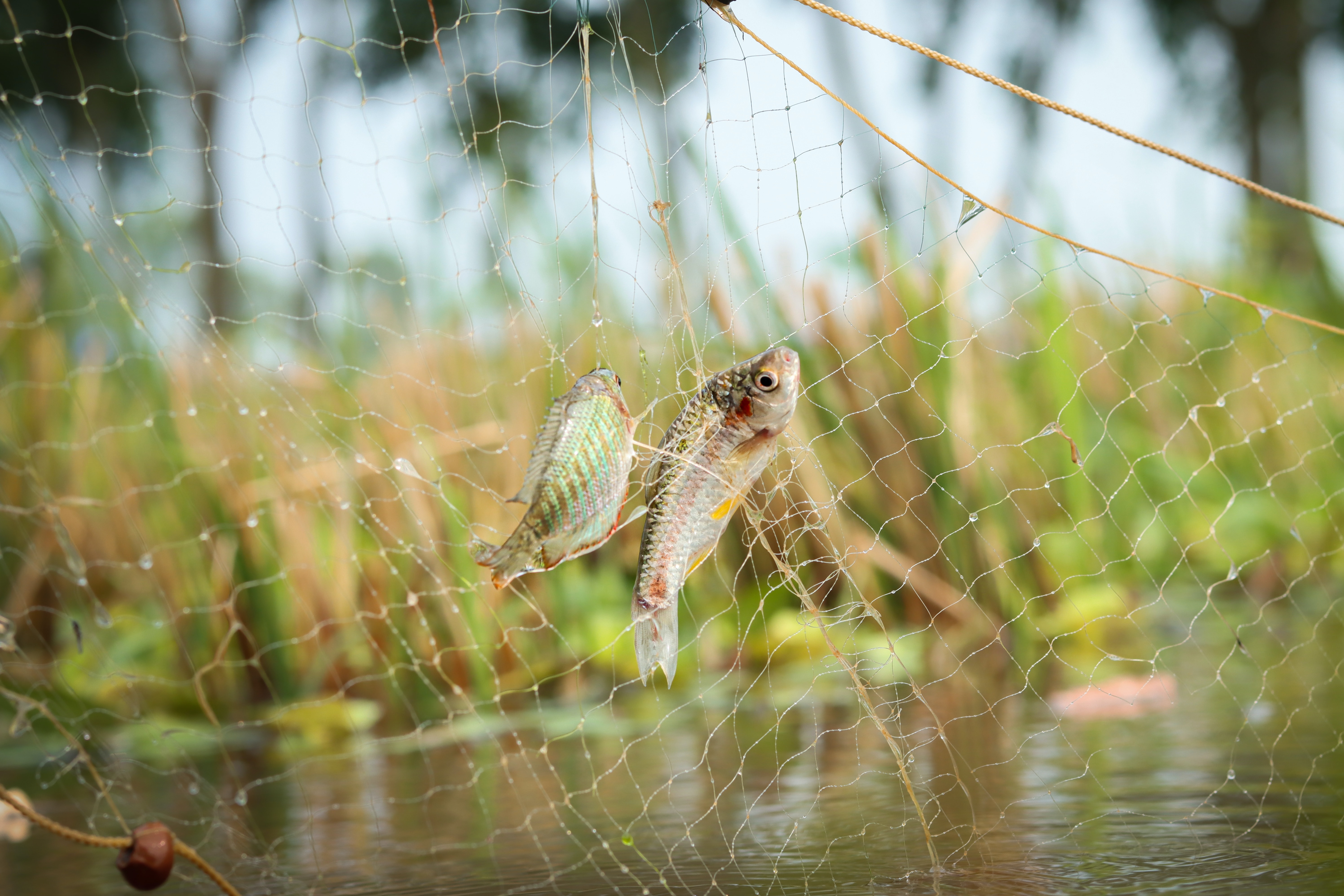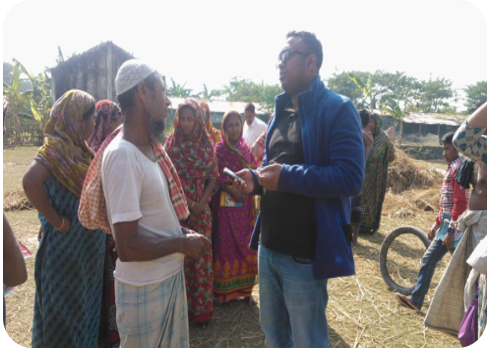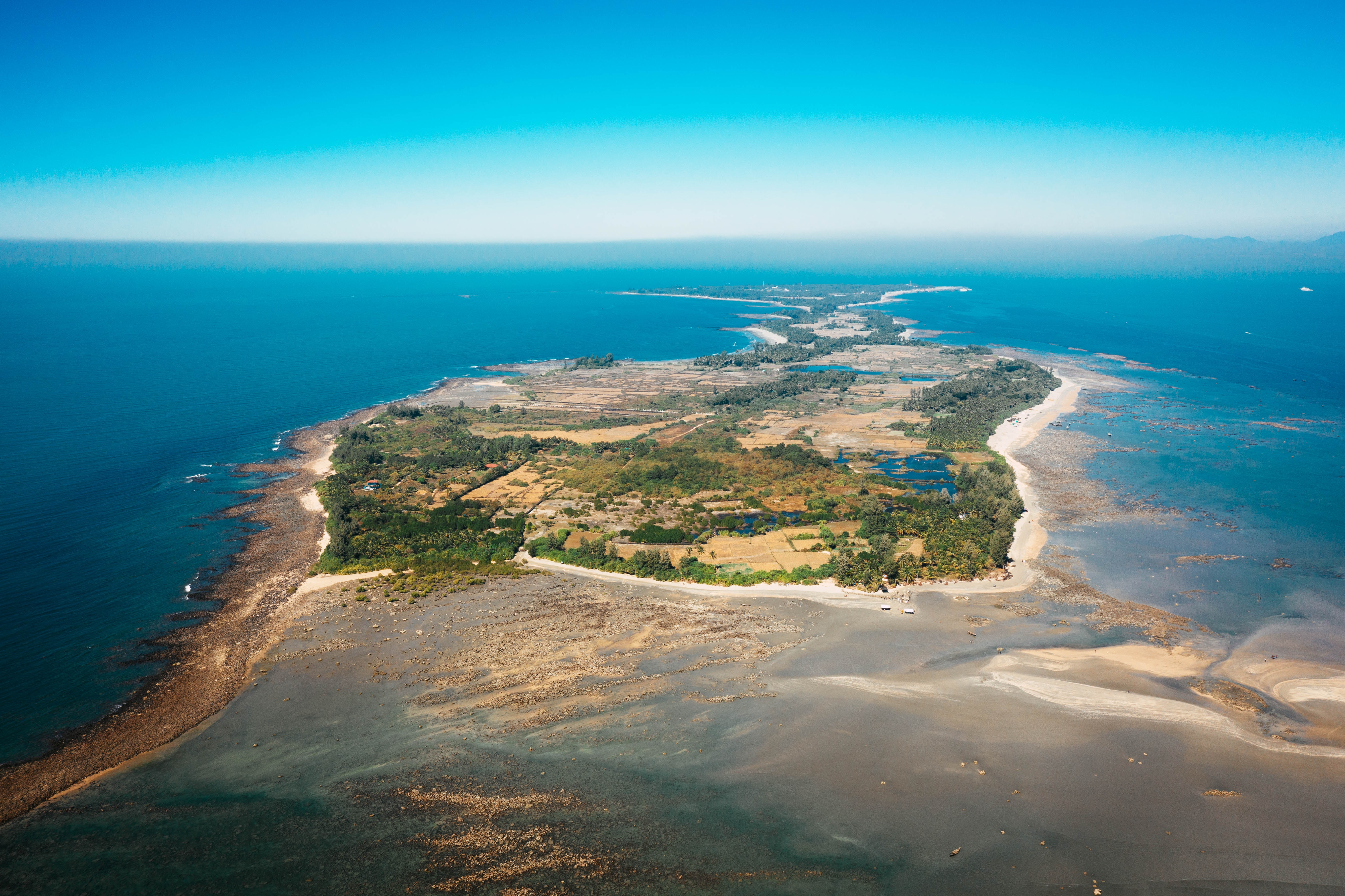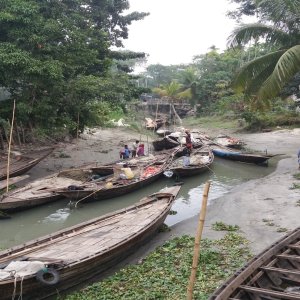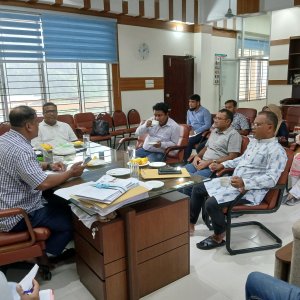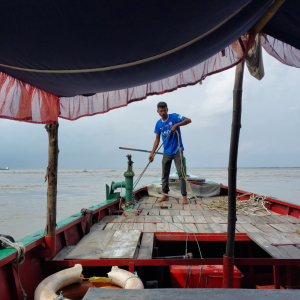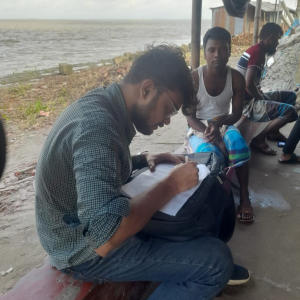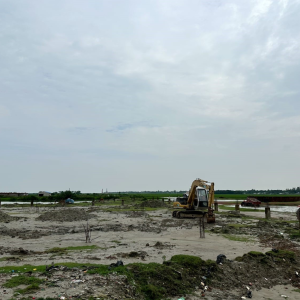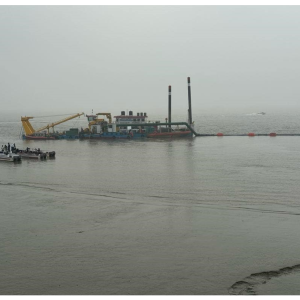International Collaboration for Sustainable Fisheries and Environmental Management in Bangladesh
Collaborative Excellence in Natural Resource Management
Since 2018, Professor Dr. Petra Schneider of the University of Applied Sciences Magdeburg-Stendal, Germany, and Dr. Mohammad Mozumder from the NOVIA University of Applied Sciences, Finland, have been leading a significant international collaboration focused on the sustainable management of small-scale fisheries in Bangladesh. This partnership, which includes contributions from the University of Chittagong and Sylhet Agricultural University in Bangladesh, aims to address various critical areas such as ecosystem management, climate change impacts, socio-economic dynamics, fisheries governance, health and nutrition, COVID-19 pandemic impacts, policy frameworks, and ecotourism. The team has made substantial contributions to the field, with over 20 peer-reviewed articles published in international journals and presentations at numerous global conferences. The initiative, funded by Prof. Dr. Petra Schneider, supports extensive fieldwork in Bangladesh, covering research expenses and international conference participation. This collaboration enhances our understanding of sustainable fisheries and contributes to broader development issues in Bangladesh. As we move forward, the focus will expand to include more diverse aspects of natural resource management, reinforcing our commitment to ecological balance and socio-economic progress in the region.
Key research areas
Our interdisciplinary team is dedicated to conducting empirical research that addresses key areas such as:
1. Sustainable Fisheries and Ecosystem Management
Research Example: SUSTAINABLE UTILIZATION OF FISHERY WASTE
Fishery waste and by-products, such as particles of flesh, skin, bones, entrails, shells or liquid stick water, are generally thrown into dustbins, ponds, rivers, and the sea in Bangladesh. Literature review and in-depth interviews with fishers and other relevant stakeholders showed that fishery waste and by-products should not be considered less valuable than the fish itself but is a precious and profitable resource capable of bringing health, social, economic, and environmental benefits and could contribute to a circular bioeconomy.
Read more here: Mozumder, M.M.H.; Uddin, M.M.; Schneider, P.; Raiyan, M.H.I.; Trisha, M.G.A.; Tahsin, T.H.; Newase, S. Sustainable Utilization of Fishery Waste in Bangladesh—A Qualitative Study for a Circular Bioeconomy Initiative. Fishes 2022, 7, 84. Link to the paper
photo: Tolga Ahmetler on Unsplash
2. Climate Change and Environmental Impact
Research Example: CLIMATE CHANGE ADAPTATION STRATEGIES FOR SMALL-SCALE HILSA FISHERS
In Bangladesh, the Hilsa fishery and the communities dependent on it are vulnerable to the adverse effects of climate change, making it imperative to adopt mechanisms to cope with its consequences. The Hilsa fishers perceive that addressing climate change requires policies that combat poverty, preserve or restore biodiversity, and enhance ecosystem services simultaneously. During our research, we identified social adaptation strategies such as risk reduction, social relationships, and participation in adaptation planning. Economic adaptation strategies include alternative livelihood development, aquaculture, and access to credit. Ecological adaptation actions include developing climate change knowledge and fishers’ local ecological knowledge, establishing more effective sanctuaries, and developing networks among protected areas.
Read more here: Mozumder, M. M. H., Schneider, P., Islam, M. M., Deb, D., Hasan, M., Monzer, M. A., & Nur, A. A. U. Climate change adaptation strategies for small-scale Hilsa fishers in the coastal area of Bangladesh: social, economic, and ecological perspectives. Frontiers in Marine Science 2023, 10. Link to the paper
photo: Ashif Ahmmed Himel on Unsplash
3. Socio-Economic Aspects and Livelihoods
Research Example: ENHANCING SOCIAL RESILIENCE OF THE COASTAL FISHING COMMUNITIES
The establishment of hilsa sanctuary areas in Bangladesh has enhanced the previously low ecological sustainability of local small-scale fishing. However, the management of this programme has challenged the social resilience of hilsa fishers by creating new inequalities in the distribution of power and privilege, in terms of the ways in which seasonal fishing bans are enforced and compensation for income loss during the ban periods is distributed. Co-management arrangements need to be sufficiently addressed in order to be successful and to enhancing the function of co-management arrangements in improving social resilience within resource-dependent communities.
Read more here: Mozumder, M.H.M.; Wahab, M.A.; Sarkki, S.; Schneider, P.; Islam, M.M. Enhancing Social Resilience of the Coastal Fishing Communities: A Case Study of Hilsa (Tenualosa Ilisha H.) Fishery in Bangladesh. Sustainability 2018, 10, 3501. Link to the paper
photo: Mohammad Mozumber
4. Governance in Fisheries and Combatting Illegal Fishing Practices
Research Example: GOVERNANCE OF ILLEGAL, UNREPORTED, AND UNREGULATED FISHING IN BANGLADESH
Because of the lack of appropriate and robust governmental laws, regulations, and manpower, Illegal, unreported and unregulated (IUU) fishing in Bangladesh has led to the extinction of important fish species, biodiversity loss, and increased poverty among fishers. Potential solutions include raising the standard of living for underprivileged fishermen, improving the management and oversight of artisanal and industrial fishing, motivating and training stakeholders, and coordinating across all stakeholder levels.
Read more here: Mozumder, M. M. H., Uddin, M. M., Schneider, P., Deb, D., Hasan, M., Saif, S. B., & Nur, A. A. U. Governance of illegal, unreported, and unregulated (IUU) fishing in Bangladesh: status, challenges, and potentials. Frontiers in Marine Science 2023, 10, 1150213 Link to the paper
photo: Rejaul Karim on Unsplash
5. Health and Nutritional Impacts of Fisheries
Research Example: DOES FISH FARMING IMPROVE HOUSEHOLD NUTRITIONAL STATUS?
It has determined the incidence of poverty in fish and non-fish farm households in Mymensingh district of Bangladesh through a comparative analysis of family profile, food consumption, calories, and protein intake. A total of 420 farms were selected for data collection using structured questionnaires with 210 fish and 210 non-fish farm families. The main conclusion our study is that fish farming is more positively related to household income, family food intake, and nutritional status than any other type of farming.
Read more here: Khanum, R.; Schneider, P.; Al Mahadi, M.S.; Mozumder, M.M.H.; Shamsuzzaman, M.M. Does Fish Farming Improve Household Nutritional Status? Evidence from Bangladesh. Int. J. Environ. Res. Public Health 2022, 19, 967. Link to the paper
photo: Mohammad Mozumber
6. The Impact of the COVID-19 Pandemic on Fisheries
Research Example: IMPACTS OF COVID-19 ON MARKET ACCESS AND PRICING OF FISHERIES VALUE CHAIN
We analysed the market access of the biggest fish market at Chattogram coastal region of Bangladesh affected by COVID-19 in the demand chain and supply chain. The study provided a set of recommendations for the improvement of market access and pricing of coastal fisheries in Bangladesh for future pandemic impacts: (i) Providing financial support to small-scale traders. (ii) Assuring the smooth flow of products and inputs. (iii) Assuring consistent demand. (iv) Encourage purchasing of seafood for institutional use such as in hospitals and schools and promote increased domestic demand. (v) Online sales of seafood products.
Read more here: Siddiqua, R.; Schneider, P.; Islam, Md. S.; Mozumder, M.M.H.; Harun-Al-Rashid, A.; Begum, A.; Shamsuzzaman; Md. M. Impacts of Covid-19 on Market Access and Pricing of Fisheries value chain in the Coastal Region of Bangladesh. Water 2022, 19, 967. Link to the paper
photo: Mohammad Mozumder
7. Developing Robust Policy and Legal Frameworks for Fisheries Management
Research Example: ASSESSING FISHERIES POLICIES OF BANGLADESH: NEED FOR CONSTANCY OR TRANSFORMATION
The existing national fisheries policy was identified to be insufficient to protect and conserve the fisheries resources of Bangladesh. Key constraints underlying in between policies and in implementation of laws includes ignorance of conservation laws, overwhelmingly top-down decision-making, lack of appropriate policy goals, inadequate enforcement, outdated policy and bogus action strategy, lack of enforcement regulations against pollution, poor coordination and technical know-how of the personnel concerned. For achieving inclusive growth in the fisheries sector, the UN Sustainable Development Goals and the government stated the Vision 2021, fisheries policy reform is recommended with special emphasis on marine fisheries sub section formulation, socio-economic development of relevant communities, updating of existing governance, and strengthening institutional capacity to appropriately manage this potential sector.
Read more here: Shamsuzzaman; Md. M.; Islam, M.M.; Begum, A.; Schneider, P., Mozumder, M.M.H. Assessing fisheries policies of Bangladesh: Need for constancy or transformation? Water 2022, 14(21), 3414. Link to the paper
photo: Mohammad Mozumber
8. Promoting Ecotourism as a Sustainable Practice
Research Example: FISHERY‐BASED ECOTOURISM
In a recent study, we explored the concept of coastal fishery-based ecotourism (FbE) to enhance the social–ecological resilience of coastal fishing communities in a specific tourist spot in Bangladesh. The findings show the considerable potential of the concept that integrates business, education, and an environmental conservation perspective. Based on the findings, specific measures for strengthening the social–ecological resilience of the coastal fishers via FbE at the local level were suggested, including building communal links, developing community infrastructures, revising prevailing rules and regulations, offering alternative means of generating income for fishers during disaster periods, and more active sharing of responsibility between stakeholders and government for the management of FbE.
Read more here: Uddin, M.M.; Schneider, P.; Asif, Md.R.I.; Rahman, M.S.; Arifuzzaman, A.; Mozumder, M.M.H. Fishery‐Based Ecotourism in Developing Countries Can Enhance the Social‐Ecological Resilience of Coastal Fishers—A Case Study of Bangladesh. Water 2021, , 13, 292. Link to the paper
photo: Rashed Kabir on usplash
9. Sand Mining
Research Example: SAND MINING
This research focuses on assessing the environmental and societal impacts of sand mining in Bangladesh, a country with an increasing demand for sand due to rapid urbanization and infrastructure development. The study aims to analyze the current status of sand mining activities, the resulting environmental damage to aquatic ecosystems, and the socioeconomic effects on local communities. Through a combination of field observations, stakeholder interviews, and policy analysis, the research will evaluate the effectiveness of existing regulations and propose sustainable strategies to mitigate negative impacts. Preliminary results indicate significant environmental degradation and social displacement, with further recommendations to improve governance.
Newspaper article from Bangaldesh on the research work (2024)
